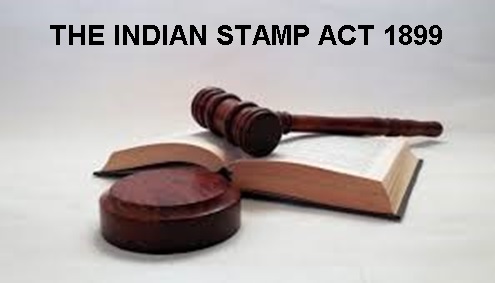One of the major amendments notified by MCA that has taken effect from the 01st October, 2023 is the requirement of demateralising securities of private companies. This measure is expected to greatly impact private companies not only as regards their corporate actions but also raises costs and numerous doubts in the minds of promoters, directors and members of such companies. Private companies constitute almost 94% of all the companies registered in India. The amendments to Companies (Prospectus and Allotment of Securities) Rules, 2014 with the addition Rule 9B makes mandatory dematerialisation of securities for all private companies excluding small companies. Private companies are typically family owned or closely held companies that rarely have large shareholder strength (even though law provides for shareholding not exceeding 200 members). This FAQ is an attempt to make the understanding related to the applicability and impact of the aforesaid amendments and to help private companies to comply with the law accordingly:
1. Whether mere holding of securities in physical mode will be in violation of Rule 9B of Companies (Prospectus and Allotment of Securities) Rules, 2014?
Not at all. Mere holding of securities (shares, debentures etc) on or after 01st October, 2024 does not violate the said provisions. The security holders can continue to hold their existing securities in physical mode.
2. Is it mandatory for a private company to provide facility for dematerialisation of the securities?
Yes. While MCA vide Notification dated 24th October, 2023 inserted Rule 9B, the date of coming into force of the said Rule was postponed with effect from 01st October, 2024 so as to provide adequate time for private companies to facilitate demat. Hence on or after 01st October, 2024 any shareholder of a private company can demand demat of his or her holdings in the company. However, it is possible for a private company not to facilitate demat on the ground that it has adequate capitalisation and it will not carry out any corporate action other than payment of dividend in the near future or will there be any transfer of shares in the near future. However, It is advisable that a unanimous resolution to that effect can be passed by the shareholders at a general meeting, with a caveat that, only upon approval by shareholders that demat facilitation can be done by the Board of Directors.
The law mandates demat facilitation only if a corporate action like issuance of securities or transfer of shares etc are to be carried out. Hence unless and until such a need arises, there is no force of law to facilitate demat. But it should also be understood that facilitating demat is a long-drawn process which at present takes more than 3 months in certain cases to obtain ISIN. Hence it may not be possible to facilitate demat over night or in a short period of time if a company is in urgent need to raise finance by issue of shares or securities or there is a request for effecting transfer of shares.
3. If a Shareholder prefers to hold securities in physical mode can a Company allow such a shareholder to hold shares in physical mode?
Absolutely. There is no bar on a shareholder to hold shares or securities in physical mode. Neither the company can force a shareholder to demat nor insist that all the securities representing its paid-up capital shall be only in demat mode. However, a company can mandate demat by providing as such in its Articles of Association.
4. Where if a company has not facilitated demat, can a shareholder be refused transfer of securities in physical mode?
In terms of Rule 9B, the onus to facilitate demat is on the company. If the company has not facilitated demat, the shareholder cannot be put to difficulty on the premise that unless demat is facilitated, the shareholder could not transfer shares. We reiterate that the law only requires the company to facilitate demat. If the company has not facilitated demat, it cannot stop or refuse transfer which is not otherwise restricted by its Articles of Association. Hence the company has to permit physical transfers until it facilitates demat of securities. Similar will be our view in respect of delay in obtaining ISIN on the part of the company or if there is any delay to facilitate demat and such delay is attributable to depository due to operational reasons.
5. Whether transmission of securities can take place in physical mode?
Yes, unlike transfer, transmission is triggered by operation of law and hence is not falling under the ambit of the term “transfer” specified in Rule 9B of Companies (Prospectus and Allotment of Securities) Rules, 2014. Hence, transmission of securities can be registered even if the company has facilitated demat and the deceased shareholder has chosen not to demat his or her holdings in the company and the legal heirs as successors in interest for the said shares want to hold it physically.
6. Whether gift of securities amount to transfer?
Very much. Gift is by act of parties and hence it is deemed to be a transfer.
7. Whether pledge of securities can take place in physical mode?
Yes, the pledge of securities can be undertaken in physical mode. Pledge does not perse amount to transfer. However, due to default or breach of terms operating the pledge, a situation may arise for the shares or securities pledged to be sold. This action will require recording of transfer of shares or securities in the name of the pledgee or any other buyer. Hence, it is incumbent on the lender to verify whether the company has facilitated demat of shares prior to entering into the transaction of pledge, to avoid any further complications arising out of enforcement of pledge and the resultant transfer of shares or securities.
8. Whether Rule 9B of Companies (Prospectus And Allotment Of Securities) Rules, 2014 applies to convertible debentures, share warrants and convertible notes?
Yes, the aforesaid Rules is applicable to “securities”. The term securities have been defined as per Section 2 (h) of Securities and Contracts (Regulation)Act, 1956, which includes shares, scrips, stocks, bonds, debentures, debenture stock or other marketable securities of a like nature in or of any incorporated company or other body corporate.
9. Whether a private company being a subsidiary of a public company is exempt from the provisions of 9B of Companies (Prospectus and Allotment of Securities) Rules, 2014 (Rules)?
As long as the private company remains the subsidiary of a public company the question of applicability of Rule 9B does not arise since such a private company is deemed to be a public company. On the contrary such a private company being subsidiary of a public company will have to comply with the provisions of Rule 9A as applicable to public companies. However, a private being a wholly owned subsidiary of a public company is exempt from the provisions of Rule 9A.
10. When does the applicability of Rule 9B of the Rules gets triggered for a private limited Company?
The requirement to facilitate dematerialisation is applicable to every private company other than those that are specifically exempt i.e, small company and government company. Rule 9B specifies a timeline of 18 months from the closure of the financial year in which a private company is not a small company for the compliance with the mandatory dematerialisation requirements.
For instance, a private company which is not a small company as on 31st March, 2023 shall comply with mandatory dematerialisation of securities within a period of 18 months from the end of FY 22-23, i.e., on or before 30th September 2024.
In case a company ceases to be a small company after 31st March, 2023, the timeline of 18 months triggers from the close of the financial year in which it ceases to be a small company. Therefore, if a company ceases to be a small company at any time during FY 23-24, the timeline of 18 months will trigger from 31st March, 2024 and therefore, shall be complied with by 30th September 2025.
In case, if the company is an associate of a company incorporated outside India and has got approval from the Central government for following a financial year from 01st January to 31st December, and it ceases to be a small company during FY 2022-23, the timeline for compliance will trigger from 31st December 2023 onwards. Such a company will be required to comply with the Rules from 30th June 2025 onwards.
11. If the Company has already issued Compulsorily Convertible Debentures / Compulsorily Convertible Preference Shares / Optionally Convertible Debentures then, is it mandatory for the company to facilitate demat prior to such conversion?
This is a premeditated event and hence the company will be in a position to plan for the same. Hence the Company has to facilitate dematerialisation of its securities prior to such redemption by conversion since such conversion will amount to issuance of equity shares or securities.
Further, sub-rule (3) of Rules 9B of the Rules state that every private limited company making any offer for issue of any securities, after the date when it is required to comply with the Rule, shall ensure that before making such offer, entire holding of securities of its promoters, directors, key managerial personnel has been dematerialised. Hence, prior to conversion, the Company will have to ensure that the existing holdings of its promoters, directors and key managerial personnel are also dematerialised.
12. What is the penalty for violation of Section 29 of the Companies Act,2013 (Act) read with the aforementioned Rules?
There are no specific penal provisions governing the non-compliance of the provisions of section 29 of the Act read with Rule 9A and 9B of the Rules, and therefore, general penal provisions under section 450 of the Act should apply.
Section 450 provides that “If a company or any officer of a company or any other person contravenes any of the provisions of this Act or the rules made thereunder, or any condition, limitation or restriction subject to which any approval, sanction, consent, confirmation, recognition, direction or exemption in relation to any matter has been accorded, given or granted, and for which no penalty or punishment is provided elsewhere in this Act, the company and every officer of the company who is in default or such other person shall be liable to a penalty of ten thousand rupees, and in case of continuing contravention, with a further penalty of one thousand rupees for each day after the first during which the contravention continues, subject to a maximum of two lakh rupees in case of a company and fifty thousand rupees in case of an officer who is in default or any other person.”






